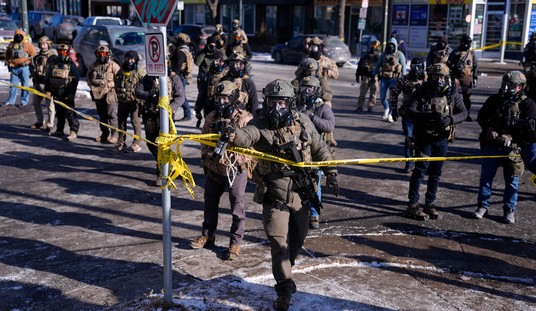On Friday we reported on the big news out of Virginia, where a U.S. District judge ruled that the federal prohibition on retail sales of handguns to adults younger than 21 is a violation of their Second Amendment rights. We’re following up on that decision on today’s Bearing Arms’ Cam & Co, with plaintiff John “Corey” Fraser and attorney Elliott Harding joining the show to discuss the case to date, as well as where they go from here.
While the case could very well have national implications, its also of local importance where I live in central Virginia. Harding’s practice is located about an hour north of where I live in Charlottesville, and Fraser is getting ready to start his senior year at Hampden-Sydney College just outside of Farmville, Virginia in Prince Edward County. Seventy years ago it was high schoolers in Prince Edward who filed a federal lawsuit challenging the county’s “separate but equal” education policies that segregated black and white students (a case that was ultimately combined with Brown v. Board of Education when the Supreme Court struck down segregated schools), and now we have another major civil rights case brewing in the county thanks to a college student and an attorney who are willing to challenge the status quo.
In his decision, U.S. District Judge Robert E. Payne ruled that, contrary to the arguments from the Biden Justice Department, adults over the age of 18 are entitled to exercise their Second Amendment rights just like every other adult. Payne concluded that there’s nothing in the historical record that would support barring young adults from accessing their right to keep and bear arms, and that the term “the people” as understood today encompasses all adult citizens.. including adults younger than 21.
That doesn’t mean, however, that Payne’s decision is in force. As Harding tells Bearing Arms, the DOJ will undoubtably appeal Payne’s decision to the Fourth Circuit, and Payne will be asked to stay his decision while the case is up on appeal.
There’s also the issue of whether or not Fraser still has standing to sue, given that he’s now 21-years-old. Harding says that he foresaw that possibility when the lawsuit was first filed, and he’s seeking class action status in order to ensure that there are still plaintiffs younger than 21 who won’t age out of any lawsuit. This has been an issue in several other lawsuits seeking to overturn age-based restrictions, but Harding says he has another backup plan if Payne doesn’t allow Fraser v. ATF to become a class-action lawsuit after granting summary judgement to Mr. Fraser.
“It’s kind of a fools errand to deny us that, in my opinion, because we’re either going to add additional plaintiffs who are 18 and therefore at a minimum ensure that we have three plus years of litigation. And we’ll continue to do that one at a time, but we can also pursue a parallel case. I mean, I could file one today and I very well may where it’s his younger brother on behalf of a class. And that suit will not have had a summary judgement yet, so we can merge them together.”
In other words, this case isn’t going to simply disappear now that Fraser is old enough to walk into Farmville Sporting Goods and purchase a handgun, no matter how hard the Biden administration might try to moot the case and Judge Payne’s decision. With anti-gun Democrats in Congress now threatening to raise the age to purchase semi-automatic firearms to 25 and similar challenges to state-level gun bans on young adults pending in appellate courts around the country, the issue should be one that attracts the attention of the Supreme Court… and Fraser v. ATF may very well be the vehicle that upends this particular infringement on our fundamental right to armed self-defense.









Join the conversation as a VIP Member